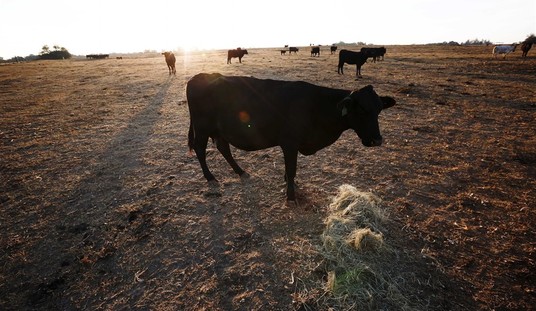This morning’s Gospel reading is John 3:16–18:
God so loved the world that he gave his only Son, so that everyone who believes in him might not perish but might have eternal life. For God did not send his Son into the world to condemn the world, but that the world might be saved through him. Whoever believes in him will not be condemned, but whoever does not believe has already been condemned, because he has not believed in the name of the only Son of God.
“Stiff-necked” feels like a pretty good description of the past three months, at least for me, and I’m pretty sure I’m not alone in this club. Thanks to what feels like a replay of the Biblical plagues this year, we’ve been hunkering down in homes to avoid both a real plague and now civil unrest. At times, it feels as though work is all we have, and I feel very fortunate to have that much.
For me, 2020’s theme is plodding along to get to the end … of something. To put one’s head up is to be almost entirely overwhelmed by all sorts of events out of our control. At times, tunnel vision seems like the only way to survive in Covidia, in the same way that looking down helps on spinning rides. We can only look up when the ride stops, or we get disoriented and unable to cope. “Stiff necked” seems like a very apropos description for a survival strategy.
Imagine, then, what it must have been like for the Israelites when Moses came to free them from four hundred years of bondage. The Israelites came to Egypt with Joseph to work, but became enslaved for centuries. They had no hope, although they kept their faith and identity as a people. To look up and question would be to lose one’s life. Those necks got stiffened as a literal survival strategy, and one can imagine only the toughest at that strategy survived. Self-reliance and self-reflection had to run strong for Moses to bring any people at all out of Egypt.
But how does a “stiff-necked people” who got toughened up by brutal captivity learn to start looking upward and outward? Our first reading today broaches that subject in Moses’ visit to Mount Sinai. He brought two stone tablets as commanded, but clearly understood what he was up against as a leader and prophet to the Israelites even after their rescue at the Red Sea:
Having come down in a cloud, the LORD stood with Moses there and proclaimed his name, “LORD.” Thus the LORD passed before him and cried out, “The LORD, the LORD, a merciful and gracious God, slow to anger and rich in kindness and fidelity.” Moses at once bowed down to the ground in worship. Then he said, “If I find favor with you, O LORD, do come along in our company. This is indeed a stiff-necked people; yet pardon our wickedness and sins, and receive us as your own.”
Ironically, as this was happening, the Israelites proved Moses correct. Rather than looking up — literally — to Moses’ encounter with the Lord on Mount Sinai, they rebelled and declared their loyalty to an idol they made themselves: the golden calf. Their years of self-reliance and lack of any evident intercession by the Lord would not prove easily overcome after all. In fact, the stiff-neckedness of His people would arise time and time again, even after their entry into the Promised Land, even after the kingdoms of David and Solomon, when the Israelites were within grasp of their prophetic mission to the world.
This disobedience and stubborn self-interest is just another unfolding of original sin. Adam and Eve rebelled against the Lord’s leadership as well, attempting to usurp His role and run things as they pleased, rather than as He pleased. They had much less cause for rebellion, having lived in His presence much more closely than any before or since, but our free will is exactly as theirs was, and the Israelites too.
Our fallen nature pushes us against looking up to the Lord. We want to believe in utter self-reliance, either as individuals or as societies. We reject His leadership and then wonder where He is in times of crisis, as though the Lord has moved off someplace rather than us walking away from Him. In times of trouble, we are either moved to seek Him again or become even more stiff-necked in our response. Mostly, though, we blame God for our woes, or worse, use them to disprove His existence. “How could a loving God allow [_____]?” we ask.
How does a loving God resolve that conundrum? As our Gospel reading proclaims in the most famous of all its verses, by sending us His Son to rescue us from our sin. This is the answer to that question and to our predilection to sin and rejection of God’s Word. The truth is that God loves us so much that He allows us to run this world, in hopes we come back to Him out of love, stiff necks and all. This was the purpose of Abraham, Moses, and the prophets — to remind us of His Word and the path back, if we choose to take it.
The sacrifice of Jesus and His Resurrection answer the question of God’s love and care for us. We have to answer for the stiff necks in response to that. It’s not easy to look up when the world burdens us with cares, as we are discovering in this moment. It is all too easy to question whether God cares for us at all. However, Jesus came so that we might have comfort in those dark moments and use them to look up and outward, rather than inward and down, to see not just our cares but those of all our sisters and brothers in the Lord. The Promised Land is open to all who look up and see that light waiting for them, prepared by the Lord for His children.
The front-page image is a detail from “Moses Showing the Tablets of the Law to the Israelites, with Portraits of Members of the Panhuys Family, their Relatives and Friends” by Maerten de Vos, c.1574-5. Archived at the Museum Catharijneconvent in Utrecht, Netherlands. Via Wikimedia Commons.
“Sunday Reflection” is a regular feature, looking at the specific readings used in today’s Mass in Catholic parishes around the world. The reflection represents only my own point of view, intended to help prepare myself for the Lord’s day and perhaps spark a meaningful discussion. Previous Sunday Reflections from the main page can be found here.








Join the conversation as a VIP Member